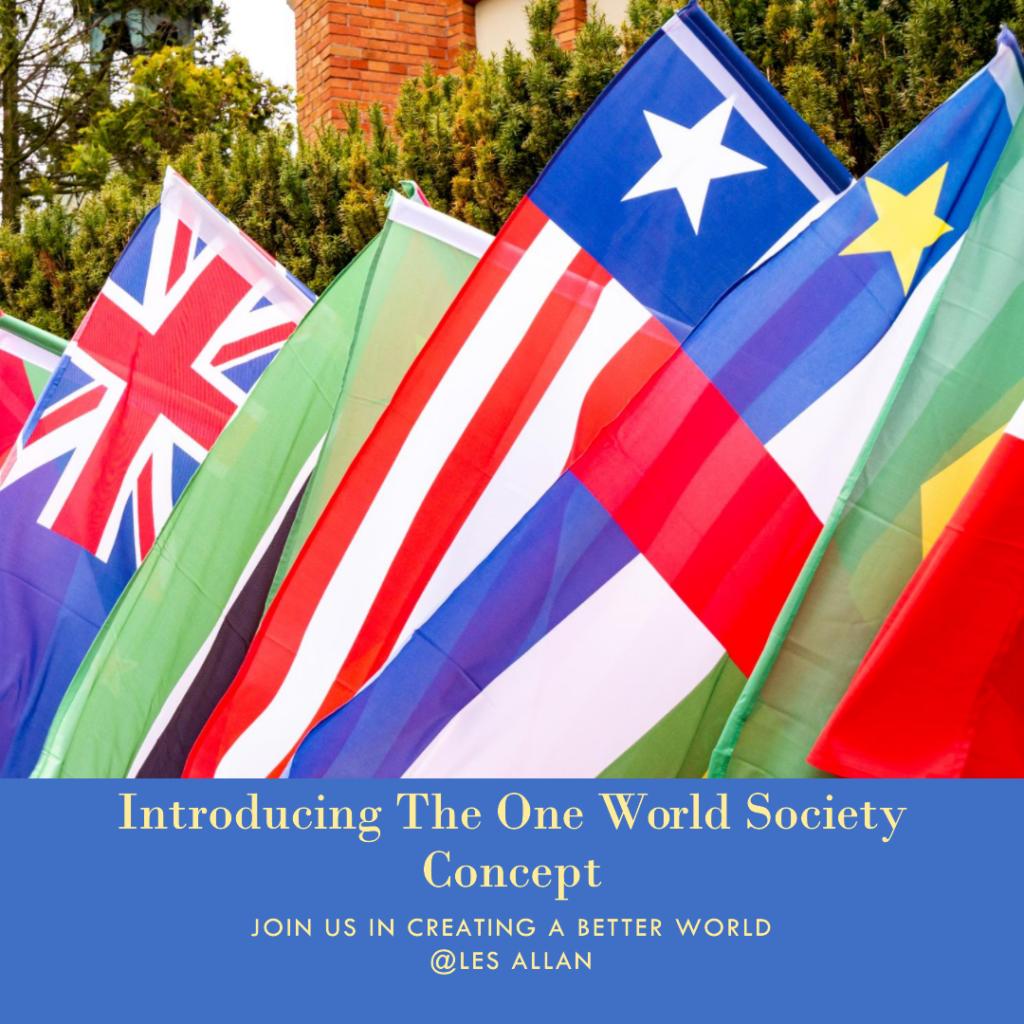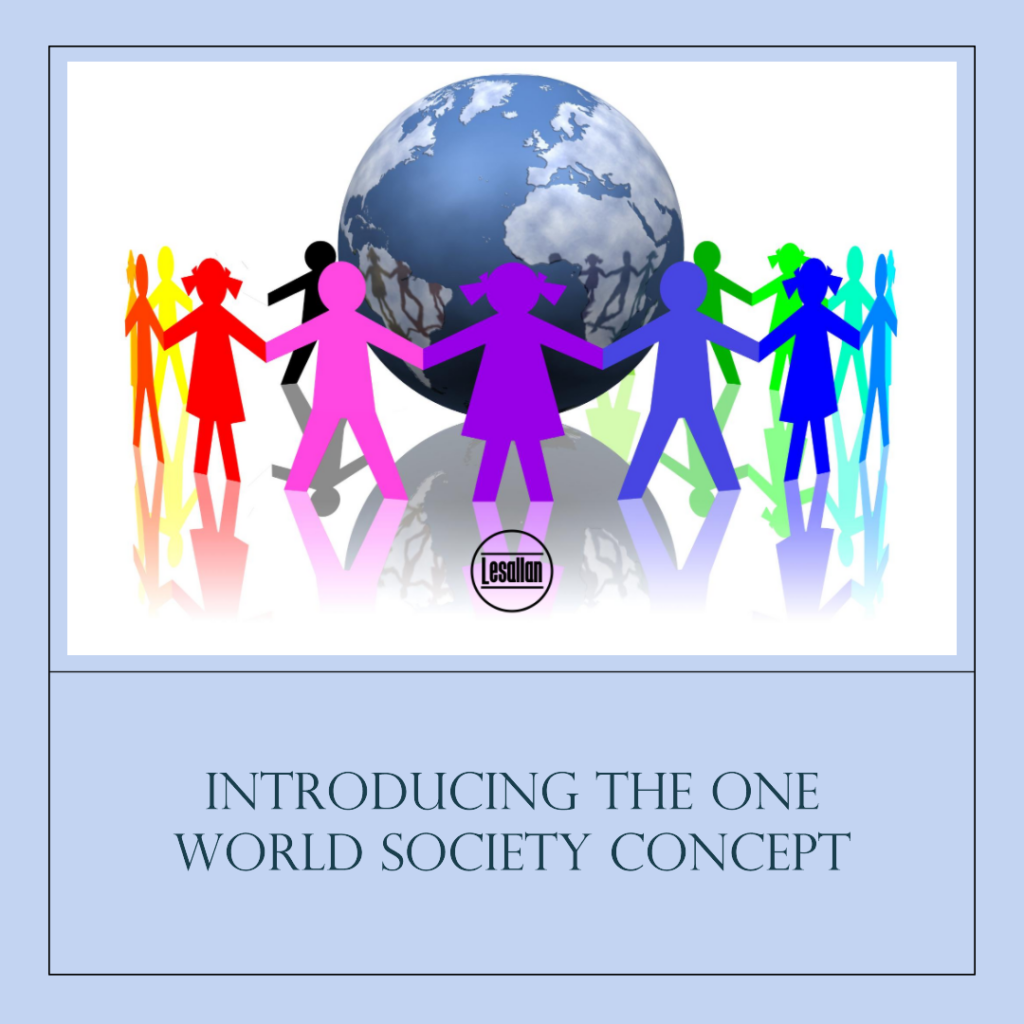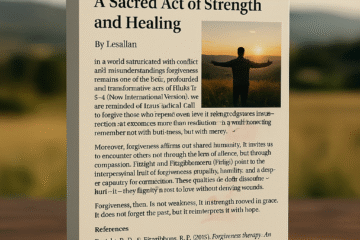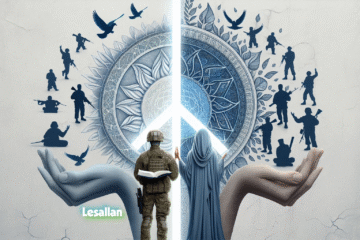Written by Lesallan Bostron – October 30, 2023

The One World Society Concept
The one-world society is a concept that has been debated for a long time. Some people believe that it is the ultimate goal of humanity, to unite under a common vision and values. Others fear that it would mean the loss of diversity, freedom, and identity. But what does it have to do with Christianity? And what does it mean to live in their world?
In this blog post, I will explore these questions and try to provide some insights from a Christian perspective. I will also discuss some of the challenges and opportunities that a one-world society would pose for Christians and other faith groups.
First, let me clarify what I mean by a one-world society. I am not talking about a global government or a single political system. I am talking about a cultural and social phenomenon, where people from different backgrounds, languages, religions, and nations interact and cooperate more frequently and easily. A one-world society would be characterized by increased globalization, communication, trade, travel, migration, and diversity.
This is not a hypothetical scenario. It is already happening in many ways. We live in a world where we can access information from anywhere, communicate with anyone, travel to any place, buy products from any country, and meet people from different cultures. We are exposed to different ideas, values, beliefs, and lifestyles. They influence us, and we influence them.
But how does this affect our Christian faith? Is it a threat or an opportunity? Is it compatible or incompatible with our beliefs? Is it something we should embrace or resist?
There is no simple answer to these questions. Different Christians may have different opinions and perspectives on this issue. However, I will try to present some general points that I think are relevant and important.
First of all, I think that a one-world society is not inherently good or evil. It is a reality that we have to face and deal with. It has both positive and negative aspects. On the one hand, it can foster understanding, cooperation, peace, and justice among people. It can also create opportunities for evangelism, discipleship, and service. On the other hand, it can also create confusion, conflict, oppression, and injustice among people. It can also pose challenges to our faith, identity, and witness.
Therefore, I think that our attitude towards a one-world society should not be one of fear or hostility, but rather one of discernment and engagement. We should not isolate ourselves from the world or reject everything that is different from us. We should also not conform ourselves to the world or compromise everything that is important to us. We should be aware of the changes that are happening around us and how they affect us and others. We should also be active in shaping the world according to God’s will and purposes.
Secondly, I think that a one-world society does not mean the end of Christianity or the loss of our identity. Christianity is not tied to a specific culture, language, or nation. Christianity is a universal faith that transcends all human boundaries and categories. Christianity is based on the person and work of Jesus Christ, who is the Lord of all creation and the Savior of all people.
Therefore, I think that a one-world society does not threaten our identity as Christians, but rather enriched by it. Our earthly affiliations or allegiances do not define us but by our heavenly citizenship and relationship with God. Our human cultures or traditions do not limit us but by our divine calling and mission. We are not isolated from other people or groups but connected to them through Christ.
We can celebrate our diversity as Christians without losing our unity in Christ. We can appreciate our differences as Christians without creating divisions in Christ. We can learn from other Christians without compromising our faith in Christ.
Thirdly, I think that a one-world society does not require us to abandon our Christian values or principles. Christianity is not based on human opinions or preferences but on God’s revelation and commands. Christianity is not relative or subjective, but absolute and objective. Christianity is not adaptable or negotiable, but stable and authoritative.
Therefore, I think that our values as Christians are not outdated or irrelevant in a one-world society, but rather essential and vital for it. We are not called to follow the trends or standards of the world, but to follow the truth and wisdom of God’s word. We are not called to please the expectations or demands of the world, but to please the will and glory of God.
We can respect other people’s views without accepting their errors. We can dialogue with other people without diluting our message. We can cooperate with other people without compromising our integrity. In conclusion, I think that a one-world society is neither Christianity nor living in their world. It is living in God’s world as Christians.
Written by Lesallan Bostron – October 30, 2023



